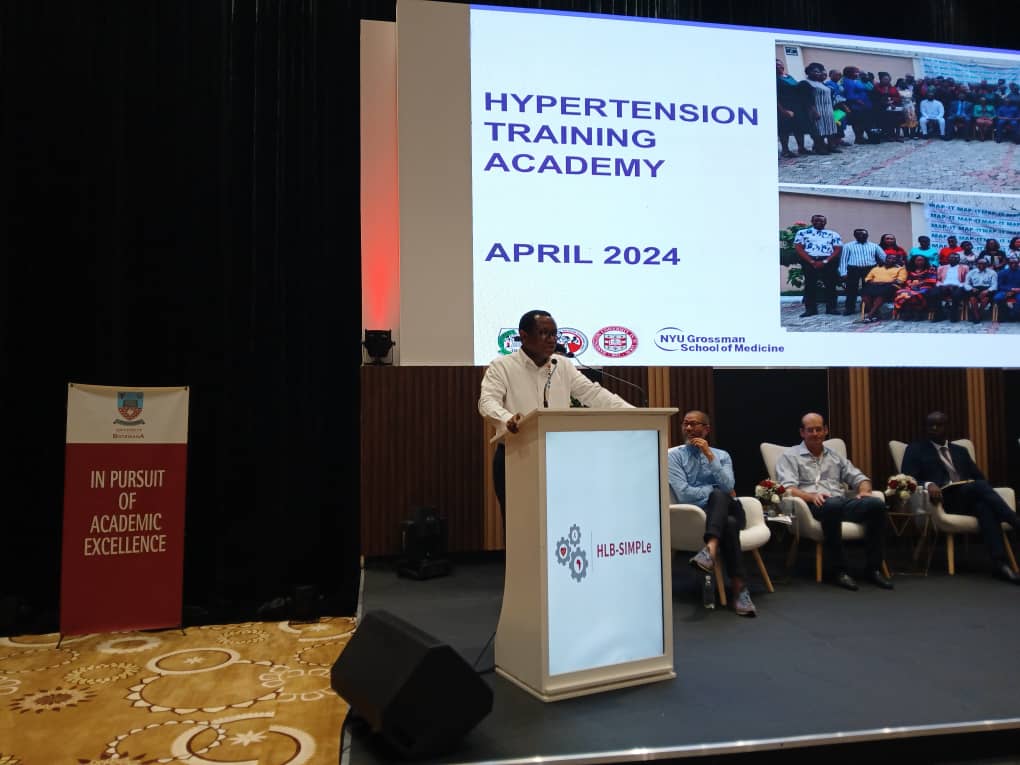
As efforts to integrate human immunodeficiency virus with non-communicable diseases to enhance health outcomes continue to gain traction, leading medical researchers met at the 2024 HLB-SIMPle Annual conference in Gaborone, Botswana (28th-30th May 2024), where all the 6 study sites in the 6 different countries in Africa, namely, Nigeria, South Africa, Uganda, Mozambique, Zambia and Botswana presented updates of their ongoing studies.
HLB-SIMPLe is an acronym derived from Heart, Lung, and Blood Co-morbiditieS IMplementation Models in People Living with HIV, and it is an alliance made up of researchers on HIV/High Blood pressure integration across the six African countries.“We held the Gaborone meeting under the theme: Integrating HIV and Non-Communicable Diseases Programmes for Scale-Up and Sustainability:
Leveraging Community Engagement, with the different countries in participation,” said Dike Ojji, associate professor of Preventive Cardiology, and lead investigator, Cardiovascular Research Unit, Department of Internal Medicine, Faculty of Clinical Sciences, College of Health Sciences, University of Abuja, whose team, Managing Hypertension Among People Living with HIV –
An Integrated Model (MAP-IT), presented impressive updates on the trials.According to Ojji, “Part of the objectives of the meeting were for sites to share their updates, mentees to present some of the small research projects they were working on, and for people to network among themselves.
”He affirmed that all of these objectives were achieved, as the group he led, MAP-IT team, comprising the University of Abuja, NYU Grossman School of Medicine, Akwa Ibom State Primary Healthcare Development Agency (AKSPHCDA), and other collaborators, “had more research results, compared to that of the other sites, especially in terms of number of publications, and engagement with stakeholders and policymakers, and being able to expose trainees and young researchers to presenting on a large stage
.”The director of the University of Abuja Institute for Advanced Medical Research and Training noted that the University team, for instance, presented two NIH-NHLBi Short Research Projects (SRP) from early career Investigators, one science communications project and two poster presentations on various topics of the Hypertension and HIV.
.Other groups in the team presented their studies including communications campaign to reduce HIV/hypertension stigma in Akwa Ibom State; integrating diabetes, hypertension, and HIV care in primary healthcare centres in Nigeria; perception of hypertension in rural communities of Akwa Ibom State, Southern Nigeria, a qualitative study; etc.
“The conference has enabled us to start thinking more of future ideas on moving our work forward, and encouraged us to keep on working hard as diligence pays off,” the associate professor stated.